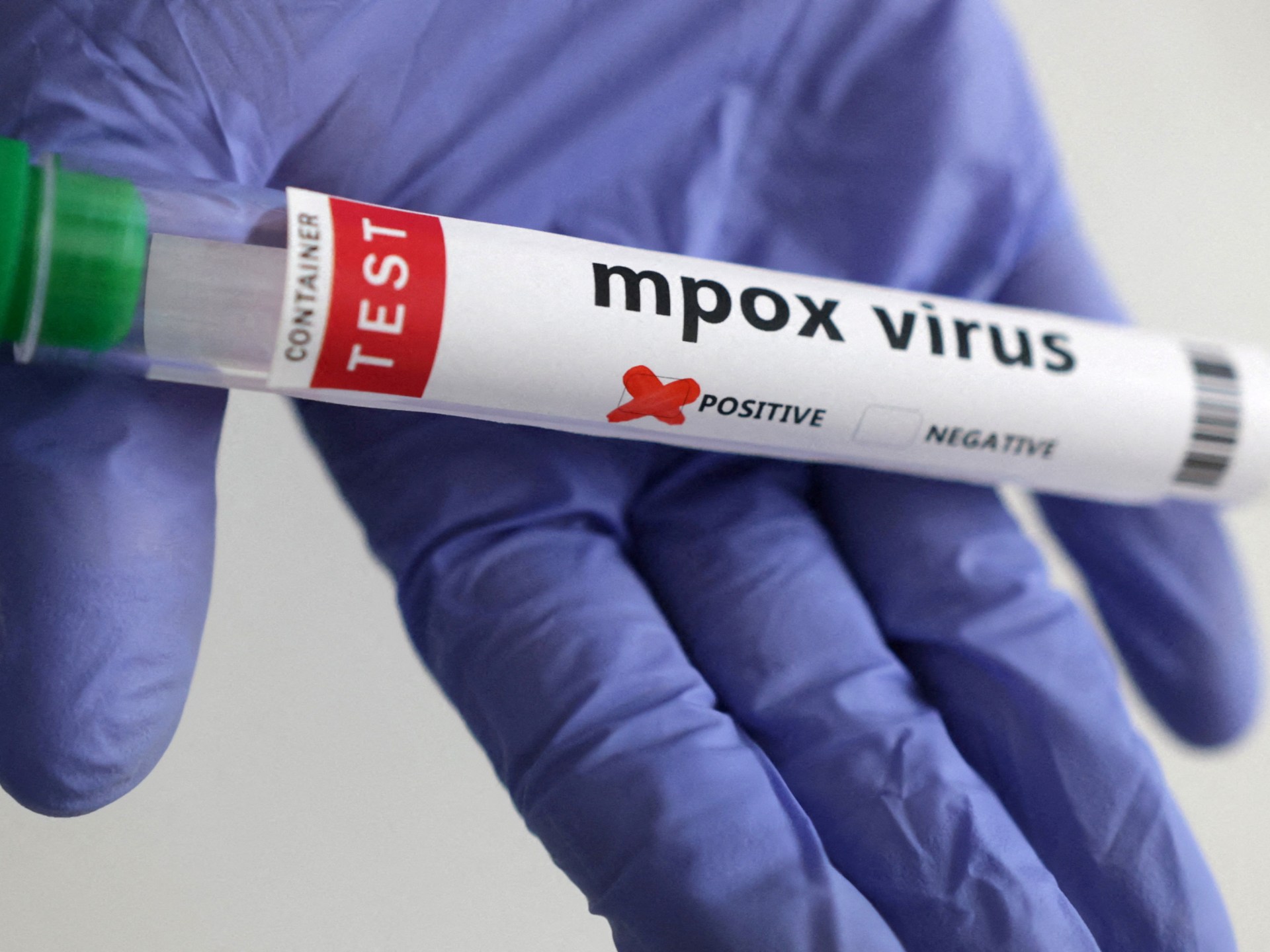‘While we are removing the emergency, we need to keep the urgency,’ says independent panel of experts for the WHO.
Published On 5 Sep 2025
Mpox is no longer an international health emergency, the World Health Organization (WHO) chief has said after experts reported a decline in infections from the dangerous disease in hot spots across Africa.
There had since been “sustained declines in cases” in the Democratic Republic of the Congo (DRC) and other affected countries including Burundi, Sierra Leone and Uganda, Tedros Adhanom Ghebreyesus said on Friday.
Recommended Stories
list of 3 itemsend of list
“The mpox Emergency Committee met yesterday and advised me that in its view, the situation no longer represents an international health emergency. I have accepted that advice,” the WHO director-general posted on X.
“Of course, lifting the emergency declaration does not mean the threat is over, nor that our response will stop,” he added, saying that the situation remained a continental emergency in Africa.
The #mpox Emergency Committee met yesterday and advised me that in its view, the situation no longer represents an international health emergency. I have accepted that advice.
Lifting the emergency declaration does not mean the threat is over, nor that our response will stop. pic.twitter.com/m5BI0rzQZB
— Tedros Adhanom Ghebreyesus (@DrTedros) September 5, 2025
The Africa Centres for Disease Control and Prevention (Africa CDC) said on Thursday that mpox still constitutes a continental public health emergency, after a consultative group found new surges in many countries in Africa.
In a statement, the Africa CDC said the consultative group’s review of the mpox situation indicated there were surges in Ghana, Liberia, Kenya, Zambia and Tanzania, even when weekly confirmed cases declined by 52 percent.
Fresh introductions of the virus were also reported in Malawi, Ethiopia, Senegal, Togo, Gambia and Mozambique, it added.
‘We need to keep the urgency’
The WHO declared mpox a public health emergency of international concern (PHEIC) – its highest level of alert – in August last year, when an outbreak of a new form of mpox started spreading from the DRC to neighbouring countries.
Mpox can spread through close contact. Usually mild, it is fatal in rare cases. It causes flu-like symptoms and pus-filled lesions on the body.
Children, pregnant women and people with weakened immune systems, such as those with HIV, are all at higher risk of complications.
Though mpox was still a health concern, the WHO made the decision to downgrade its PHEIC status based on advice from its Emergency Committee, which meets every three months to evaluate the outbreak.
“While we are removing the emergency, we need to keep the urgency,” Dimie Ogoina from the Emergency Committee said.
“This is not a time for us to reduce the investments in terms of financial investment, partnership, solidarity, especially for most affected countries in the African continent,” he added.
Out of the recorded cases, there had been worrying levels of deaths among people living with HIV/AIDS, particularly in Uganda and Sierra Leone, and signs of vulnerability among infants and children in DRC, Ogoina said.
The new form of mpox, clade Ib, continues to predominantly impact sub-Saharan Africa. There have also been travel-related cases in Thailand, the United Kingdom and other countries.
Source link
#Mpox #longer #international #health #emergency #remains #concern #Africa #Health #News
